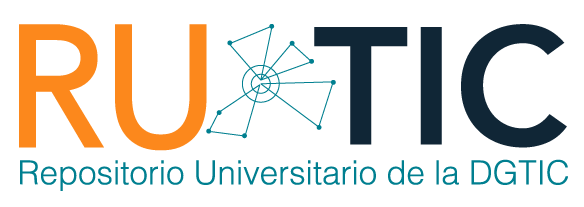| dc.coverage.spatial | MX | |
| dc.date.accessioned | 2018-06-28T05:34:38Z | |
| dc.date.available | 2018-06-28T05:34:38Z | |
| dc.date.issued | 2016-02-01 | |
| dc.identifier.uri | https://ru.tic.unam.mx/handle/123456789/2613 | |
| dc.description | Tema del mes | |
| dc.description.abstract | El objetivo del presente trabajo es discutir la importancia que tiene la enseñanza de la bioética en la formación científica. La ciencia es una actividad que ha aportado innumerables avances y beneficios en términos sociales, sin embargo, su construcción a través de la historia no ha estado exenta de abusos, violaciones y prácticas desproporcionadas por parte del ser humano hacia su propia especie, los animales, las plantas, los ecosistemas y el planeta entero. Este trabajo es una reflexión sobre alternativas más juiciosas, sustentables, benéficas y libres de daño hacia los otros mediante la educación de estrategias alternativas para minimizar el daño antropogénico. Asimismo, plantea interrogantes respecto a los mitos sobre la ciencia y los científicos, así como la conveniencia de cambiar estos dogmas por nuevos paradigmas, y discute la idea de que un científico con formación bioética no tiene la opción de permanecer en un silencio informado respecto a los alcances, riesgos y consecuencias de su labor científica. Finalmente, respecto al gremio científico, se sugiere aplicar los principios de la triple RRR (Reemplazar, Reducir y Refinar) desde un punto de vista diferente | es_MX |
| dc.description.abstract | The aim of this paper is to discuss the importance of bioethics teaching to both science students and teachers. Science has brought countless advances and benefits to human well-being, however, its historical development has occurred in parallel with abuse, slavery and disproportionate practices from human beings towards their own species, animals, plants, ecosystems and the entire planet. We discuss on alternatives in education considered more judicious, sustainable, benefic and damage free towards “the others” in order to minimize anthropogenic damage. Questions regarding the myths of science and scientists are raised along from the convenience of changing old to new paradigms. Scientific community with bioethical training no longer has the option to remain uninformed about the implications, risks and consequences of their scientific work. Finally, regarding the scientific guild, it is suggested to apply 3Rs principles (Replacement, Reduction, and Refinement) from a different point of view | en |
| dc.format | html | |
| dc.format | application/pdf | |
| dc.format.extent | 3.6 MB | |
| dc.format.extent | 1.43 MB | |
| dc.language | spa | |
| dc.publisher | Universidad Nacional Autónoma de México. Dirección General de Cómputo y de Tecnologías de Información y Comunicación. Revista Digital Universitaria | |
| dc.relation.isformatof | http://www.revista.unam.mx/vol.17/num2/art14/art14.pdf | |
| dc.relation.ispartof | Vol. 17, No. 2 | |
| dc.relation.ispartof | http://www.revista.unam.mx/index_feb16.html | |
| dc.rights | openAccess | |
| dc.source | Revista Digital Universitaria (1607 - 6079). Vol. 17, No. 2 (2016) | |
| dc.subject | Bioética | |
| dc.subject | Ciencia | |
| dc.title | La enseñanza de la Bioética en Ciencia | es_MX |
| dc.title.alternative | The Teaching of Bioethics in Science | en |
| dc.type | article | en |
| dc.subject.keywords | Enseñanza, bioética, ciencia, ética, educación, conocimiento científico | |
| dc.identifier.url | http://www.revista.unam.mx/vol.17/num2/art14/ | |
| dc.creator | MARIA DE LOS ANGELES CANCINO RODEZNO | |
| dc.rights.url | http://creativecommons.org/licenses/by-nc-sa/4.0 |
Files in this item
This item appears in the following Collection(s)
COMPARTE
BÚSQUEDA
Escriba el texto a buscar en DSpace
CONTACTO
El Repositorio Universitario de la DGTIC se edita en la Dirección General de Cómputo y
de Tecnologías de Información y Comunicación (DGTIC), de la Universidad Nacional Autónoma de México (UNAM)
Circuito Exterior s/n, Ciudad Universitaria, Coyoacán, C.P. 04510, México, D.F
Tel: +(52) (55) 56228166 Email: rutic@unam.mx









 ¿Qué es un repositorio...?
¿Qué es un repositorio...? ¿Qué beneficios obtengo...?
¿Qué beneficios obtengo...? ¿Qué tipo de recursos...?
¿Qué tipo de recursos...? Preguntas frecuentes
Preguntas frecuentes